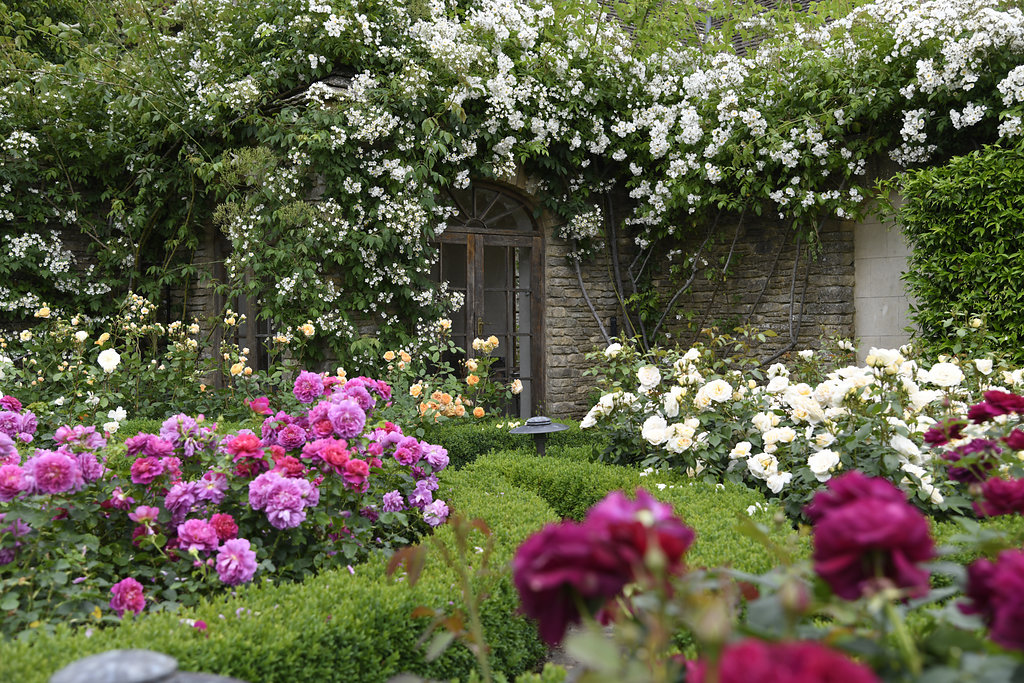As winter blankets the UK in a crisp, cool embrace, many might assume that gardening takes a seasonal hiatus. However, the colder months offer a unique opportunity for dedicated gardeners to continue their green endeavours. Here at Whatley Manor, our gardening team relish the quieter months of the year as a chance to connect with nature while preparing the groundwork for the busy growing season ahead.
In this article, we will explore the joys and challenges of winter gardening, along with providing tips to keep your garden thriving during the colder season. We will also be looking ahead to spring and summer with a simple ‘recipe’ for DIY seed bombs.

Planting for winter colour
Choosing winter shrubs for maximum impact in the UK involves considering factors such as evergreen foliage, colourful berries, and the joy of seeing early flowers before the spring bulbs start to push their way through the earth. Here are some of the winter shrubs that we have in the gardens to provide beauty and interest during the colder months.
Witch Hazel (Hamamelis): Witch Hazel produces spidery, fragrant flowers in late winter to early spring. The vibrant colours and sweet fragrance can brighten up a winter garden.
Mahonia: Mahonia varieties, such as Mahonia ‘Charity’ or ‘Winter Sun,’ have bold, architectural foliage and produce fragrant yellow flowers in winter. The blue-black berries that follow provide additional interest.
Viburnum Bonarienssis: This evergreen shrub features dark green leaves and clusters of small, fragrant white flowers in late winter. The flowers are followed by metallic blue berries, providing additional visual interest.
Snowdrops have been out for a while now and we also have crocus Iris Reticula, daffodils and primula providing a welcome splash of colour as the days gradually begin to lengthen.
Protecting Your Plants
Frost and freezing temperatures can be challenging for some plants, but with a bit of care, you can protect them from the harsh winter conditions.
Consider using frost cloths or horticultural fleece to cover delicate plants during particularly cold nights. Mulching around the base of plants helps insulate the soil, preventing it from freezing and providing an extra layer of protection.
Getting ahead
We have been busy laying the groundwork for the rest of the year by pruning the roses, cutting, and shaping evergreens such as hollies and conifers, along with creating safe havens for native habitat in dead hedges and log piles.
Our gardeners have been drilling holes in wood for solitary bees and one of our team, Luke Shaw, has made a hurdle fence to enclose the bees of Whately Manor. He has achieved this by foraging for materials on site.
As a result, we are pleased to say that we have already seen lots of early bee activity in the garden!
DIY seed bombs!
At Whatley Manor, we are all about sustainability, embracing initiatives such as home-made composting and ‘no dig’ kitchen gardening to preserve the biodiversity of the soil in our gardens and the high nutrient value of our crops.
As more people become engaged in the green revolution, one small but fun way of beautifying open spaces is the creation of DIY seed bombs. These are small, biodegradable capsules, containing a mixture of seeds, soil, and clay. These eco-friendly devices are powerful spheres, designed to be casually tossed or planted in specific areas, encouraging the growth of native plants.
They are easy to make and a satisfying job for a dull afternoon. In a bowl, you mix equal parts of soil, cand compost with the seeds of your choice, before adding enough water to shape the mixture into balls. The process is remarkably similar to making dumplings for a stew!
Coat the balls with clay to protect the outer surface before leaving the balls to dry for at least 48 hours.
An effortless way to turn neglected areas into havens of colour and tranquility!
Gardening in winter is about embracing the now and planning for the future. Here at Whatley Manor, we aim to plant for colour and structure throughout the year and we hope to inspire you on your next visit.


